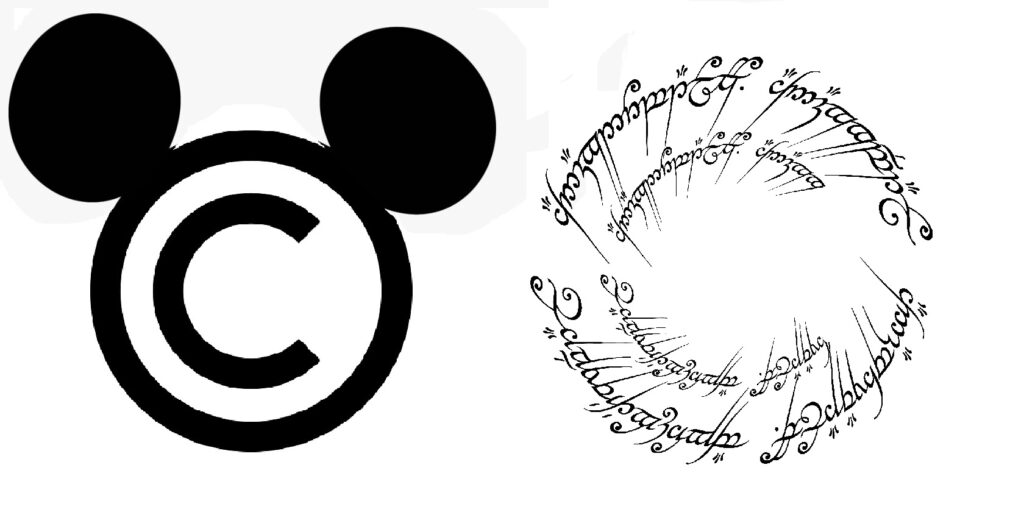Two separate legal battles, over two different creative works, may prove instructive to the writers among you.

Recently, I blogged about the Julie and Julia Formula, where you transform a passion of yours into literary success. A workable formula, true, but you must take care to avoid the legal peril of copyright violation.
Copyright
In concept, copyright strikes a duration-specified balance between respecting the right of a creator to profit from creative work without competition, and providing the public unrestricted access to all ideas. Our nation’s founding fathers set that compromise at 14 years. Over time, Congress lengthened it to either 95 years after publication or 70 years after the author’s death, whichever comes first.
Mickey
Two recent events brought copyright into the news. I’ll start with Mickey Mouse. As of January 1, the early depictions of Walt Disney’s iconic cartoon rodent entered the public domain. You’re free to write or draw your own Mickey Mouse story and sell it. The Disney legal team won’t bury you in cease-and-desist orders if you do.
That lifting of a restriction arrived far too late for Dan O’Neill, who, in 1971, attempted to profit from his comic book, “Air Pirates Funnies,” which featured the famous mouse. Though Mickey is just a mouse, the Disney lawyers must have seemed to O’Neill like some larger and more voracious animal.
Tolkien
The other recent event concerns JRR Tolkien’s Lord of the Rings. Tolkien got his book published in 1955, so it’s still under copyright. A writer going by the name Polychron published an unauthorized sequel in 2022. An army soon attacked. Not an army of Orcs, but, worse, an army of lawyers hired by the Tolkien family heirs.
Temptation
What might we learn from these two cases? The obvious lesson—don’t infringe on someone else’s copyright.
Easy to say, but that lesson doesn’t say it all. Often, we take up writing because we’ve fallen in love with another author’s work. We love that author’s world and characters. We immerse ourselves in the book. We imagine other adventures for those characters. Ideas for sequels and prequels spring to mind.
We write a new story out of love, enjoying every minute of the project. We adore the finished product. What’s the harm, we think, of making a few bucks? The character’s original creator is dead, the family is wealthy, and our work is a tribute, after all, not some crass satire.
The Other Side
To see the harm, picture the matter from the other side. No matter what you think of the 95/70 years rule, it’s the current law. Imagine you dreamed up a memorable character, one the world fell in love with. Your book became a best-seller and the resulting movie a blockbuster. You’ve made a well-deserved fortune and you’ll die knowing your heirs will live in financial comfort.
Along comes some upstart, a writer who couldn’t be bothered to create an original character in an original world. This thief steals your work, your intellectual property, and seeks a profit from it. (Here, I’m not referring to anyone in particular, just to a hypothetical copyright violator.) In such a case, you’d hope the lawyers fight for the rights of your heirs.
Takeaway
Rather than stealing another author’s character, be creative. Turn that love of another’s work into something different. Honor your favorite author by slanting your book down a unique path.
Or, if you must use someone else’s ideas, pick those old enough to have advanced to the public domain. If you go that direction, don’t just add zombies—I’m begging you. The ‘classics plus zombies’ mashup is cliched. If any readers harbored doubts about your originality in copying an idea freshly emerged into the public domain, you’ll only confirm a reputation as an unimaginative hack by inserting zombies.
Go write a story involving the early Mickey Mouse if you wish. But, however strong the temptation, do not copy the ideas of—
Poseidon’s Scribe
